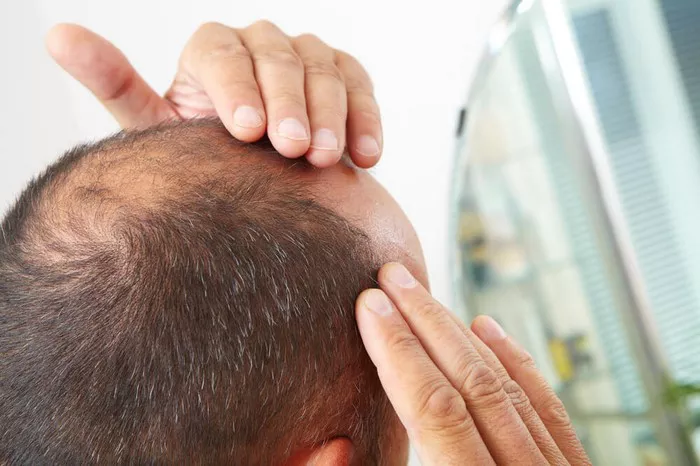Understanding Hair Loss:
Hair loss is a common concern affecting individuals of all ages and genders. This comprehensive guide explores proven hair loss treatments that have shown effectiveness in addressing various types of hair loss, providing insights into both prevention and restoration.
1. Topical Treatments
Minoxidil:
Minoxidil, a widely recognized over-the-counter treatment, is applied directly to the scalp. It stimulates hair follicles, promoting hair growth. Users typically notice results after consistent use, making it a popular choice for both men and women.
Finasteride:
Finasteride is an oral prescription medication that inhibits the hormone dihydrotestosterone (DHT), a key contributor to male pattern baldness. It has shown effectiveness in slowing hair loss and promoting regrowth, particularly in men.
Topical Corticosteroids:
For individuals with alopecia areata or other inflammatory conditions leading to hair loss, topical corticosteroids can reduce inflammation and encourage hair regrowth when applied to the affected areas.
2. Hair Growth Shampoos and Conditioners
Ketoconazole Shampoos:
Ketoconazole, an antifungal ingredient found in certain shampoos, may have anti-androgenic properties. Regular use can improve the thickness and density of hair, making it a valuable addition to a comprehensive hair care routine.
Biotin-Infused Products:
Biotin, a B-vitamin, is essential for hair health. Biotin-infused shampoos and conditioners aim to strengthen hair strands and promote overall hair vitality. While not a standalone solution, they complement other treatments.
3. Platelet-Rich Plasma (PRP) Therapy
Harnessing the Body’s Healing Power:
PRP therapy involves extracting a patient’s blood, separating the platelets, and injecting the concentrated platelet-rich plasma into the scalp. Rich in growth factors, PRP can stimulate hair follicles and enhance hair growth.
4. Low-Level Laser Therapy (LLLT)
Stimulating Hair Follicles:
LLLT involves using low-level lasers or light-emitting diodes to stimulate hair follicles. It’s a non-invasive approach that may increase blood flow to the scalp and encourage cellular activity, promoting hair growth.
5. Hair Transplant Surgery
Permanent Restoration:
For those seeking a more permanent solution, hair transplant surgery involves harvesting hair follicles from donor areas and transplanting them to balding or thinning areas. It offers a natural-looking and lasting result.
Frequently Asked Questions
Q1: Are there natural remedies for hair loss?
Natural Approaches: While not universally proven, some individuals experience benefits from natural remedies like a balanced diet, essential oil scalp massages, and herbal supplements. However, scientific evidence supporting these methods is limited.
Q2: Can stress cause hair loss?
Stress and Hair Loss: Yes, chronic stress can contribute to hair loss. Telogen effluvium, a condition triggered by stress, results in increased hair shedding. Managing stress through relaxation techniques can help mitigate its impact.
Q3: Are hair loss treatments safe during pregnancy?
Pregnancy Considerations: Pregnant individuals should consult healthcare professionals before using certain hair loss treatments. Some treatments may not be recommended during pregnancy due to potential risks to the developing fetus.
Q4: How long does it take to see results from hair loss treatments?
Results Timelines: The timeline for seeing results varies depending on the treatment. Minoxidil users may notice changes in a few months, while hair transplant results become noticeable several months post-surgery.
Q5: Can I combine different treatments for better results?
Combination Approaches: Combining treatments under professional guidance can enhance results. For example, using minoxidil alongside low-level laser therapy may offer synergistic benefits.
Q6: Are there treatments for inherited hair loss?
Genetic Hair Loss: Inherited or genetic hair loss often responds well to treatments like minoxidil and finasteride. Early intervention tends to yield better outcomes, slowing the progression of hair loss.
Q7: Do these treatments work for women as well?
Gender Considerations: Yes, many of the mentioned treatments, including minoxidil and PRP therapy, are suitable for women experiencing hair loss. Women should seek personalized advice to determine the most effective approach.
Q8: Can a healthy diet prevent hair loss?
Nutrition and Hair Health: A nutrient-rich diet contributes to overall hair health. Consuming foods rich in vitamins, minerals, and proteins supports hair growth, but dietary changes alone may not address certain types of hair loss.

